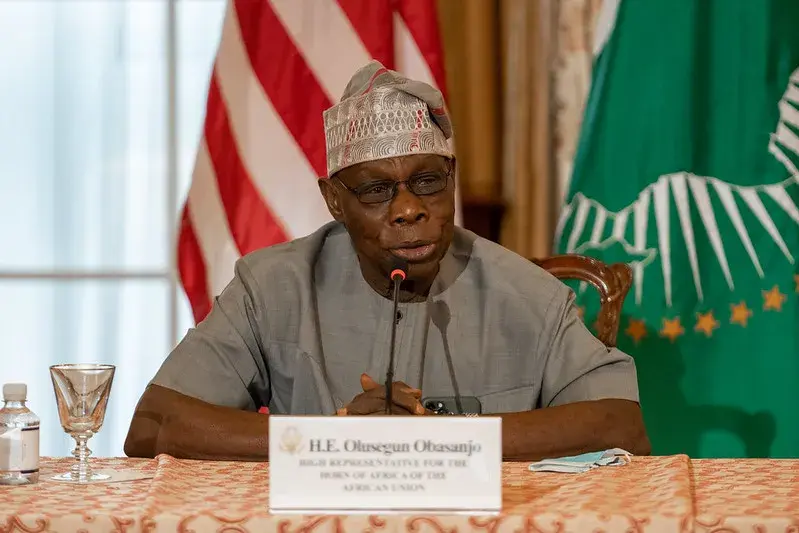The African Union has named former Nigerian President Olusegun Obasanjo as a mediator to avert a war between Ethiopia and Somalia, which are locked in a dispute over Ethiopia’s agreement with the breakaway region of Somaliland.

The African Union’s Peace and Security Council (PSC) has appointed former Nigerian President Olusegun Obasanjo as a mediator to defuse the growing crisis between Ethiopia and Somalia, which threatens to erupt into a war. The PSC hopes that Obasanjo’s experience and stature can help resolve the dispute peacefully.
The root cause of the conflict is the agreement that Ethiopia signed with Somaliland, a self-declared republic that broke away from Somalia in 1991, on January 1. The deal gives Ethiopia access to a port and a naval base on the Red Sea, in exchange for a stake in Ethiopia Airlines, the successful national carrier. Somaliland also expects Ethiopia to recognise its independence, something that no other country has done so far.
Somalia, which considers Somaliland as part of its territory, has denounced the agreement as an act of aggression and a violation of its sovereignty and territorial integrity. It has recalled its ambassador from Addis Ababa and declared its readiness to go to war to defend its borders. It has also rejected any mediation efforts by the African Union or other regional bodies, unless Ethiopia cancels the deal with Somaliland.
This is not the first time that Ethiopia and Somalia have been at loggerheads. In 1977, they fought a war over the disputed Ogaden region, which resulted in a stalemate. In 2006, Ethiopia intervened in Somalia to oust the Islamist group that had taken control of Mogadishu, sparking a long-running insurgency by Al-Shabaab, a militant group affiliated with Al-Qaeda. Ethiopia is one of the main contributors of troops to the African Union peacekeeping mission in Somalia, which aims to stabilise the country and support the federal government.
The agreement with Somaliland is seen by Ethiopia as a strategic move to secure its access to the sea and diversify its trade routes, as it is currently dependent on Djibouti for most of its maritime needs. Ethiopia is also involved in a dispute with Egypt and Sudan over the Grand Ethiopian Renaissance Dam, a mega-project that could affect the flow of the Nile River.
Obasanjo faces a daunting challenge as he tries to bridge the gap between the two countries, which are engaged in a complex and tense geopolitical game. On Wednesday, Somalia refused to allow an Ethiopian plane carrying government officials to land in Somaliland, escalating the standoff. The PSC has urged both parties to respect the principles of the African Union and international law and to seek a peaceful solution to their differences.
The African Union does not recognise Somaliland as an independent state, but as a province of Somalia. It has also called on other countries not to interfere in the matter, which could further complicate the situation. The Intergovernmental Authority on Development (IGAD), a regional bloc that includes Ethiopia and Somalia, held an emergency summit on Thursday in Kampala, Uganda, to discuss the issue, but Somalia did not attend.
Somalia has maintained a hardline stance, saying that it will not negotiate with Ethiopia until it reverses its agreement with Somaliland. “Ethiopia has infringed on the sovereignty and territorial integrity of Somalia when it signed an unlawful agreement with the northern region [the administration of Somaliland] of Somalia. That is why there is no space for mediation unless Ethiopia annuls its unlawful agreement and reaffirms the sovereignty and territorial integrity of Somalia,” the Somali Ministry of Foreign Affairs said.







